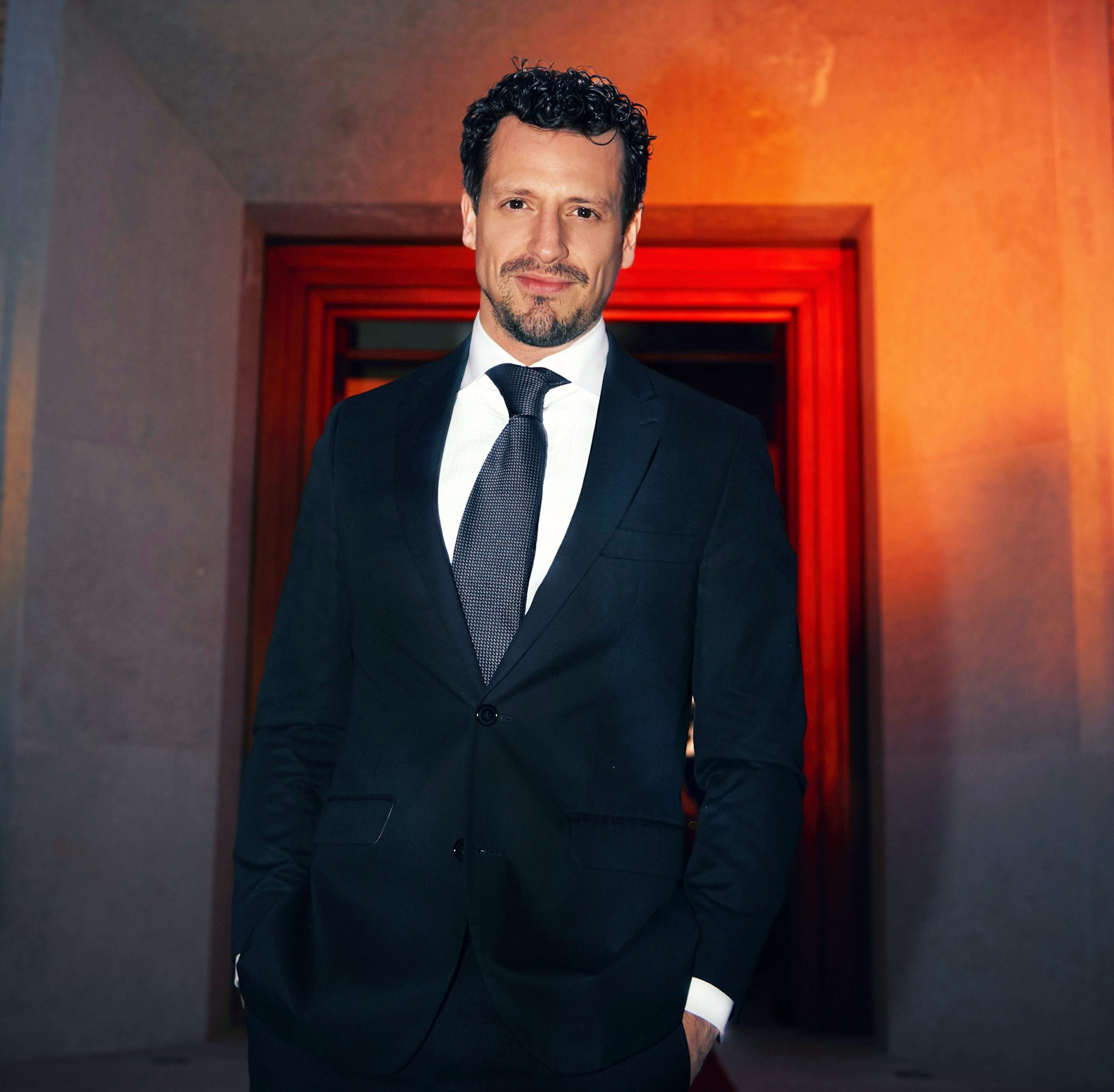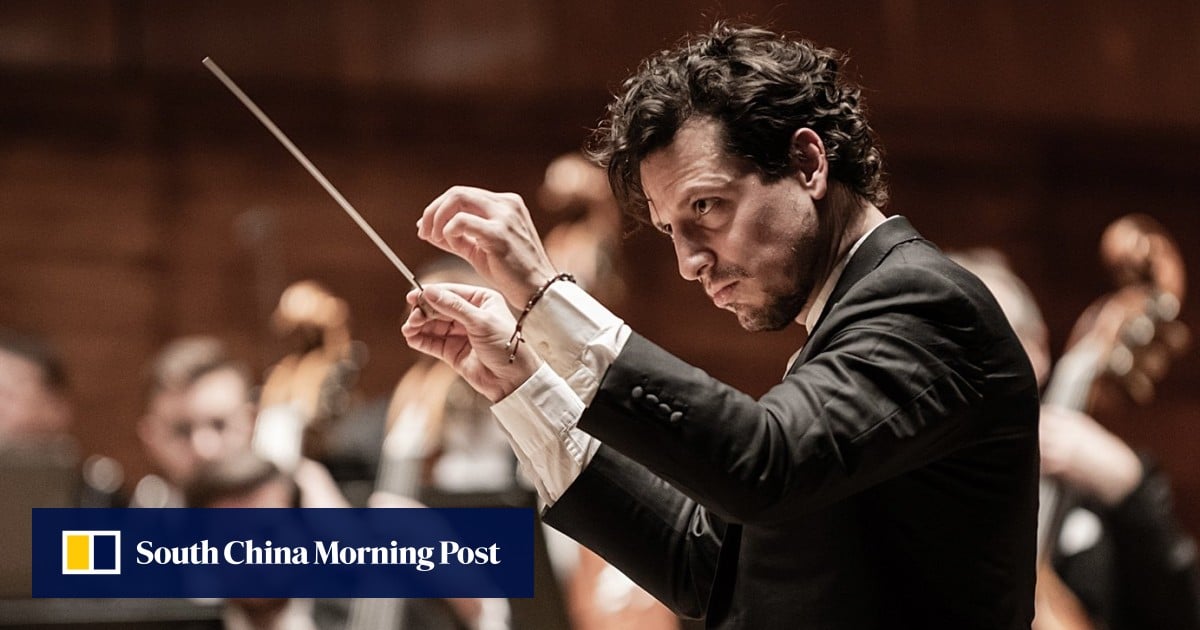“When I saw the conductor, I started crying again because I was overwhelmed by emotions. That night I told myself, ‘This is what I want to become.’ So becoming a conductor was my life goal.”

Bortolameolli is currently the music director of the Sinfónica Azteca (México), principal guest conductor of the Santiago de Chile Philharmonic Orchestra, and music director of Chile’s National Youth Symphony Orchestra.
He will be in Hong Kong to conduct a Latin American programme with the Hong Kong Philharmonic Orchestra on December 30 and 31.
“I’m really looking forward to my performance in Hong Kong because it’s about bringing music from Latin America but with the repertoire from what we expect a New Year’s Eve celebration might be,” he says.
Pianist Lang Lang takes Beethoven to extremes with Hong Kong Philharmonic
Pianist Lang Lang takes Beethoven to extremes with Hong Kong Philharmonic
“For me, as a Chilean conductor, it’s an enormous honour to feature songs from my country.”
The programme includes music from Mexico, Chile, Bolivia, Argentina, Cuba and Puerto Rico.
“When the HK Phil invited me, they wanted to have a programme that features a lot of different music with a sense of unity around Latin America and dances that in a way make you understand this is a New Year’s Eve concert,” he says.
“In Latin America, dance is an important part of our culture.”

The first piece is Mexican composer Silvestre Revueltas’ Sensemayá, which includes Latin American folk percussion instruments and complex, primitive rhythms. It is followed by Puerto Rican composer Roberto Sierra’s Sinfonía No. 3 La Salsa, which has the rhythmic patterns of salsa music.
Other highlights of the programme include Argentinian composer Astor Piazzolla’s Four Seasons of Buenos Aires, representing tango; American composer George Gershwin’s Cuban Overture, which shows what Latin America meant to him as a foreigner; Chilean composer Miguel Farías’ Condor, which is having its world premiere with the HK Phil; as well as Austrian composer Johann Strauss II’s Die Fledermaus (The Bat) overture and French composer Maurice Ravel’s La Valse, both featuring Viennese waltz themes.
“It’s an interesting but very coherent [programme] because there is a clear narrative. So I’m pretty sure people will love it,” Bortolameolli says.
The conductor studied at the University of Chile, Yale School of Music and the Peabody Institute in Baltimore. He has worked extensively in Latin and North America, Europe, and Asia.
My aim is to always listen to what the orchestra offers and make a move that in a way is a conversation
Recent credits include appearances in Spain at the Gran Teatre del Liceu to conduct Mozart’s The Magic Flute; in France at the Opéra de Paris for 11 performances of Tosca; and his debut with the San Francisco Symphony orchestra.
“I’m the happiest man alive every time I’m in a concert hall. It’s not about the concert, but about sharing music. There’s a special bond with people that you don’t know, but you get to know them through music. It’s such a profound and deep human connection that I can’t find in anything else,” he says.
Describing an orchestra as a “living organism”, he stresses that the ideal conductor should lead, not dictate.
“It’s such a beautiful experience because we breathe together, move together and, by the magic of music, the energy comes from music. My aim is to always listen to what the orchestra offers and make a move that in a way is a conversation,” he says.
‘So well prepared’: composer hails Chinese staging of his Schoenberg opera
‘So well prepared’: composer hails Chinese staging of his Schoenberg opera
He adds that he has been very lucky to have met fantastic musicians who have had a huge impact on him, such as Peruvian conductor David de Pino Klinge, his first mentor.
“I learned so much from him in terms of technique and the real life of conducting, such as how to deal with rehearsals, budgets and programming,” he says.
“The last mentor I got that became the most important one for me was Gustavo Dudamel, because I worked closely with him for six years [at the Los Angeles Philharmonic]. He is so supportive and always so generous sharing everything he could about his experiences in this world of conducting.”
Shanghai taps world-class operas to boost appeal as a tourist destination
Shanghai taps world-class operas to boost appeal as a tourist destination
On conducting opera, Bortolameolli says he has to react to what happens on stage. “So your brain and your hearing have to be connected to the situation.”
He adds that “the multidimensional work in opera production gives me more elasticity when it comes to conducting an orchestra”.
Bortolameolli is looking forward to sharing the festive spirit with Hong Kong.
“Hong Kong is a fascinating city. I already have friends there because I’ve been there twice.
“Apart from performing, I would also like to walk through streets, eat their food, cross the harbour and listen to the sounds of the city.”

